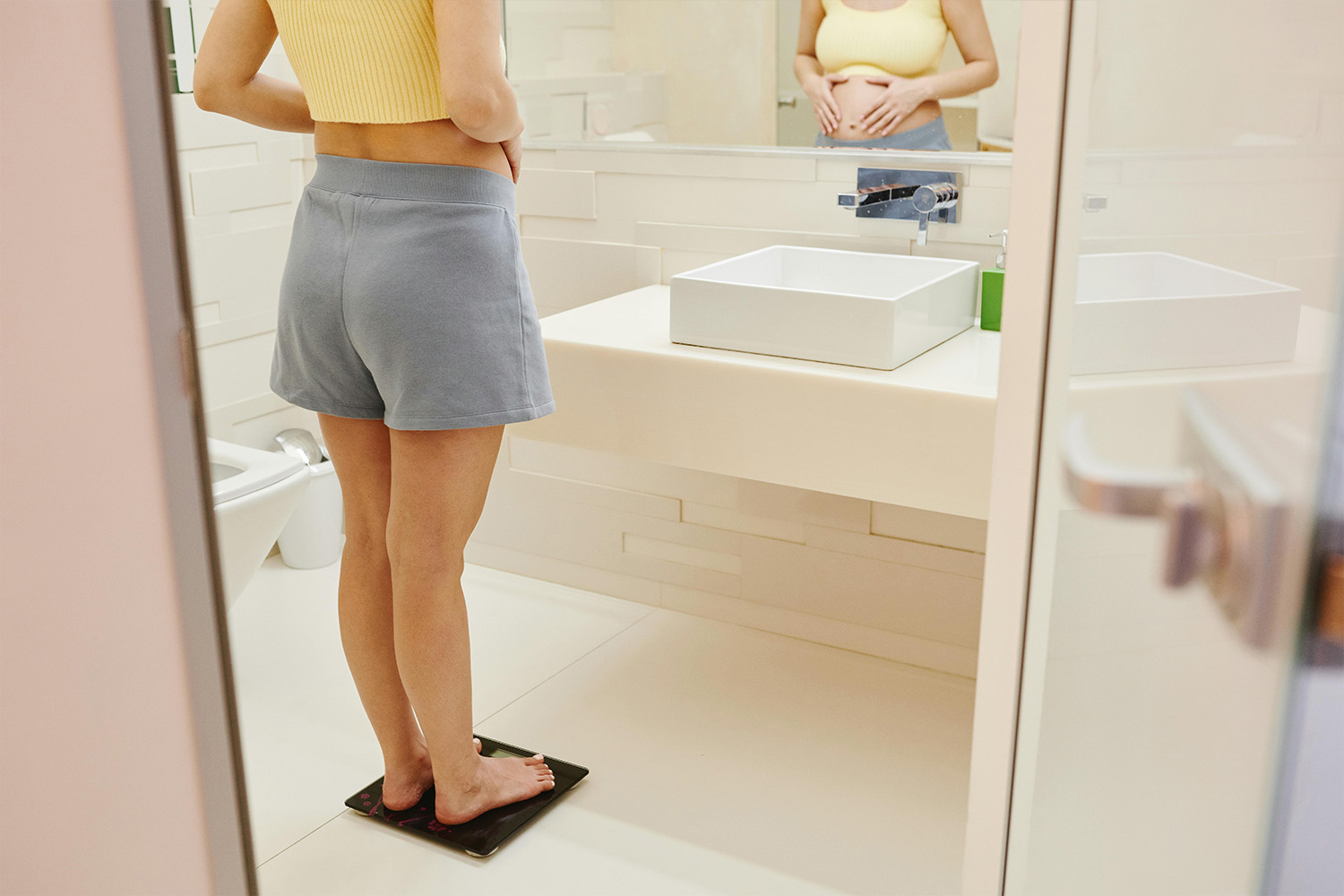A woman’s body undergoes several hormone changes before menopause, signaling the end of her reproductive years. Symptoms such as weight gain, hot fatigue, irregular periods, mood swings, and sleep disturbances are common during this transitional stage known as perimenopause.
To cope with perimenopause symptoms and life challenges, some women may turn to alcohol. However, alcohol can worsen these symptoms and disrupt the hormonal balance during perimenopause.
Perimenopause coach Cody is a certified women’s health coach who helps many women in their journey of perimenopause, menopause, and hormone disturbances. She offers women who are feeling overburdened and stressed out by their hormonal movement emotional and mental support.

Continue reading to understand perimenopause and hormonal changes, the effects of alcohol during perimenopause, and Cody’s tips for managing alcohol utilization.
Perimenopause Hormone Levels and Hormonal Changes
Women’s bodies in their 40s encounter a natural revolutionary phase of hormones called perimenopause. This transitional phase can lower the development of two important hormones, estrogen and progesterone, which help in the menstrual cycle and egg development.

The oscillation of perimenopause hormone levels leads to emotional and physical changes occurring in the form of symptoms like irregular periods, sleep pattern changes, and much more. The right way of making lifestyle modifications is crucial for navigating these life challenges. Perimenopause can also increase the risk of various health and heart issues.
How Can Alcohol Disturb Your Hormones?
Perimenopause often disrupts your sleep patterns and alcohol can exacerbate this by affecting sleep quality and dilating your blood vessels. The widening of vessels causes blood flow and worsens night sweats and hot flashes [1]. Find out how alcohol can disturb your perimenopause hormone levels.

High Estrogen Level
Estrogen regulates a woman’s menstrual cycle and helps to maintain bone and skin health. Consumption of alcohol interferes with the liver’s functionality, absorbs bone calcium, and demineralizes bone to increase estrogen levels. The high level of estrogen increases the risk of breast cancer [2], and loss of bone health can cause osteoporosis.
Reduce Progesterone Level
Progesterone is the hormone that produces or balances other hormones. Excessive intake of alcohol can affect the growth of progesterone hormones and lower them [3]. Reduced progesterone levels can cause insomnia, anxiety, and stress, which exacerbates perimenopause symptoms.
Disturbance of Sleep Quality
Many women may take alcohol during their menopause to fall asleep because of perimenopause hormone levels. Initially, it may help you to sleep, but after much consumption, you may feel less rested. Your dream sleep (REM sleep) may get destroyed, and sometimes you will not sleep overnight.
Weight Gain
Managing weight becomes difficult during perimenopause due to hormonal fluctuations. Alcohol contains a lot of empty kilojoules, lowers metabolism, causes weight gain, increases blood pressure, and increases cholesterol. Consuming alcohol can intensify the management of weight and increase the cause of breast cancer [4].

Hot Flashes and Night Sweats
Hot flashes and night sweats already disturb women’s day or night and make you uncomfortable. Heavy intakes of alcohol alter your body temperature regulation and affect the vascular system. Your vascular system’s skin may dilate to release heat, intensify the frequency of hot flashes, and cause irritability and fatigue-like issues [5].
Mood and Depression
A woman who is in transitional perimenopause faces a lot of anxiety and depression due to managing work and symptoms together. Depressive women drink alcohol to make their stress level low, but the need for alcohol may increase with time. A glass of alcohol may have more than a woman should consume in a single day, which makes perimenopause symptoms worse [6].
Tips to Manage Alcohol Consumption During Perimenopause
Moderation is key. It is better to consume alcohol occasionally instead of daily intake. Limiting the intake of alcohol can maintain perimenopause hormone levels, and you can enjoy your drink happily.
Limitations
Limit your consumption of alcohol from daily to occasional. It is okay to take a glass of alcohol in a week or on occasion. Count your weekly intake and reduce it gradually. Use smaller glasses to drink alcohol.
Choose Wisely
Try to choose a low-sugar alcohol or alcohol-free version for regular drinks. Drink club soda with dry wine or spirits.
Stay Hydrated
Eat food before drinking alcohol and prevent taking it on an empty stomach. Drink water between alcohol consumption to reduce dehydration.
Track Symptoms
Alcohol may affect your perimenopause symptoms individually and can make them worse. Make a chart and note how consuming alcohol can impact your symptoms.
Enjoy Alternatives
Find out the market’s low- or no-alcohol beverages to avoid alcohol consumption. You can choose kombucha, herbal tea, and mocktail. These are all non-alcoholic drinks you can enjoy [7].
Sleep Priority
Your sleep should be your priority. If drinking alcohol can disturb your sleep patterns, avoid taking them in the evening, especially after dinner.
Conclusion
Perimenopause can significantly impact a woman’s life, with some experiencing worsened symptoms, while others may experience milder effects. Some may experience mild. Alcohol can affect the perimenopause hormone level so badly and can make symptoms worse. You should place your health first before anything. Intake of alcohol moderately will be better than taking it daily.
Alcohol can spike the level of estrogen, which can increase the risk of breast cancer and osteoporosis, lower the level of progesterone, disturb sleep patterns, cause weight gain, increase hot flashes and night sweats, and develop depression. Lower your alcohol limit to occasionally, stay hydrated, choose low or non-alcohol, and prioritize sleep.
Cody is a professional and certified women’s health coach who helps women with these hormonal changes and guides them to maintain their bodies and manage these symptoms. Contact Health by Cody for a one-on-one or online session.
FAQs
- What is perimenopause?
Perimenopause is the difficult hormonal changing period of a woman’s life that happens before menopause. During this phase, a woman may face difficulty in sleep, daily routine tasks, and weight gain-like symptoms.
- How does alcohol affect hormonal balance during perimenopause?
High consumption of alcohol uses your body’s minerals and nutrients to imbalance hormones that can disturb your daily life and worsen your perimenopause symptoms.
- Can alcohol cause hot flashes?
Yes, alcohol attacks your vascular system, dilates your blood vessels, and impacts your body’s regular temperature. The body releases heat, causes hot flashes, and worsens them.
- Does alcohol intake cause irregular sleep patterns?
Yes, alcohol may initially make you fall asleep, but after some time, your dream sleep will get disturbed, and even you cannot sleep overnight.
- How to control or avoid alcohol?
Limit your alcohol and drink moderately on occasion, find alternatives like herbal tea, opt for no or low-sugar alcohol, avoid drinking it after evening, keep yourself hydrated, and notice symptoms.
References
[1] https://www.contemporaryobgyn.net/view/alcohol-and-menopause-a-balancing-act
[2]https://hertilityhealth.com/blog/alcohol-and-hormones-what-is-the-link
[3]https://hellobonafide.com/blogs/news/alcohol-and-menopause
[4]https://www.hcf.com.au/health-agenda/women/perimenopause-menopause/alcohol-and-menopause
[5]https://www.womenofacertainstage.com/post/perimenopause-and-alcohol-a-balancing-act
[6]https://www.henryford.com/blog/2023/12/how-alcohol-consumption-can-impact-your-menopause-symptoms

